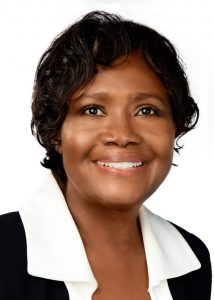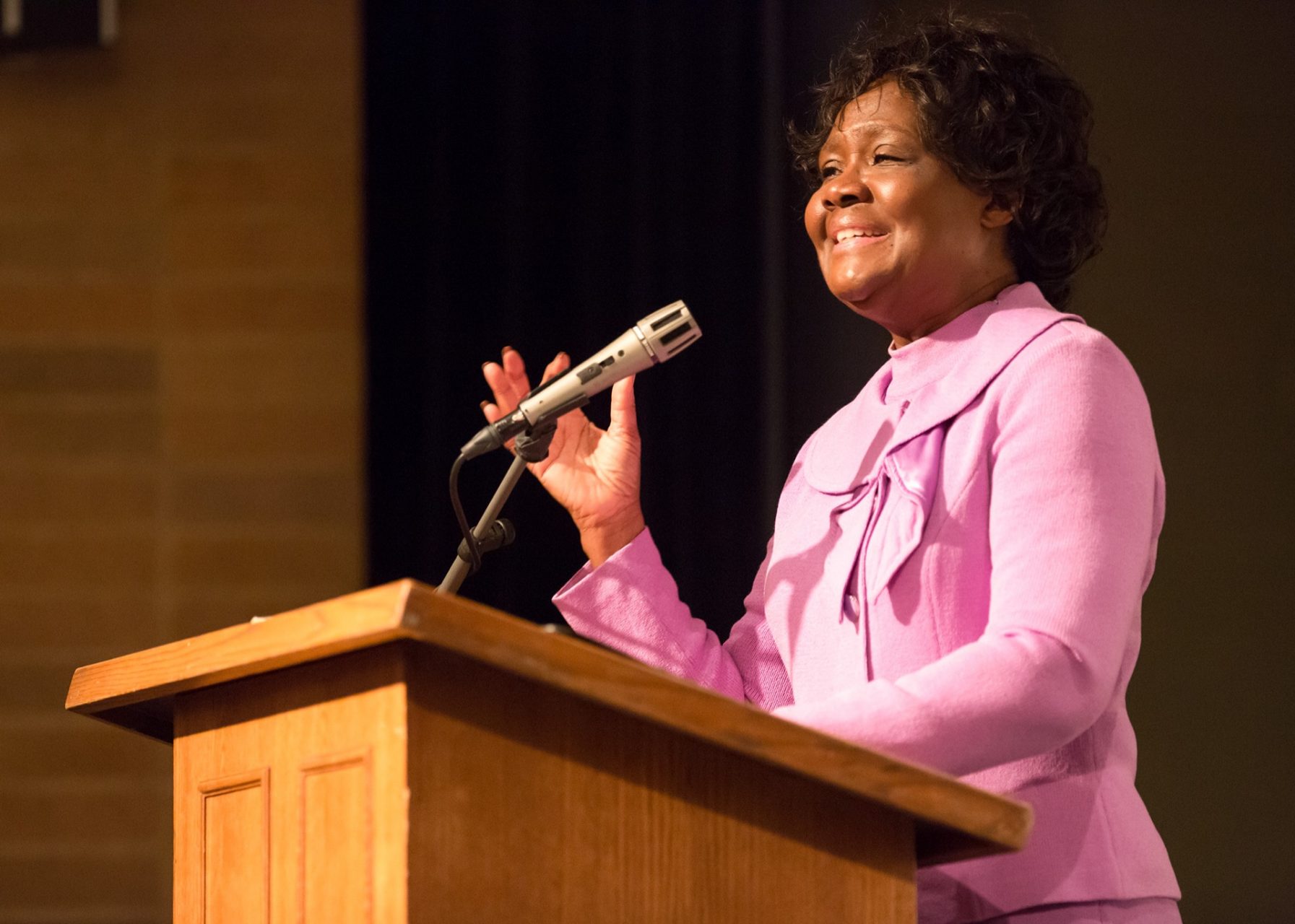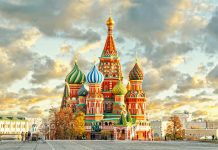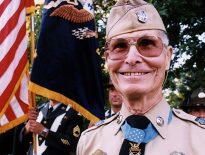Living in times of great social transformation is both a privilege and a challenge. In this interview, Dr Ella Simmons reveals what her childhood and youth were like during the American civil rights movement. In that turmoil, she also discovered the church she came to love and serve with dignity and courage.
What is your fondest childhood memory?
I have many fond memories from my childhood, but the strongest ones are related to my great-grandmother. She was the anchor in my life and she taught me everything I know about life, God, relationships, cooking and many other things. Somehow, I developed a love for books. By reading, I would travel vicariously through the stories I would read in books. I didn’t own many books; we had a few, but we were not rich.
Though we were not affluent in that way, we had the richest relationships and understanding of life. So I was always encouraged to use the public library, which was free in the United States. And I would go and come back with huge stacks of books and travel to all kinds of exotic places through my reading. Perhaps that extended into a love of school. Combining the love of learning and reading, I suppose that shaped my perspective on school.
Were those in your family practising Christians?
My family was not Seventh-day Adventist, as I am now, but all my family members were Christians. Although we did not have regular family worship, there was a worshipful atmosphere in the house, coupled with prayer and conversations about our walk with God.
It was about a lifestyle rather than a life centred on the church.
Yes. There were certain activities that were centred around the church: we memorised Scripture, sang Christian songs and hymns, and attended the preaching services, but the way that it played out on a daily basis was most interesting to me.
To this day, I don’t know if my great-grandmother educated me in this way intentionally, or if it was her natural way of living and sharing life.
You said that your family was not Seventh-day Adventist, as you are now. How did you find out about this faith and what attracted you to it?
It was the faith of my family that laid the foundation, I would say. We were taught to always think for ourselves and to study to understand for ourselves. I took that literally and studied the Bible on my own. That’s how I discovered certain teachings that I hadn’t heard in the church I was attending, which, from my perspective as a 14-year-old girl, was a clear violation of God’s Word.
Could you give us some examples?
One of them had to do with the Sabbath.
So, at 14, you discovered the truth about the Sabbath on your own, by reading the Bible, not knowing which church kept the Sabbath according to the Bible.
I read it in the Ten Commandments. All Christians believe in the Ten Commandments, and I asked myself: How come we believe in nine of the ten commandments, but not in this one? I had many unanswered questions. After a few years, I discovered the Seventh-day Adventist Church, where I found answers to all my questions, so I decided to be baptised into the Adventist Church.
When did you become aware of the fact that there were certain issues in the relationship between white people and black people?
This is an insightful question. Most of the neighbourhoods I spent my childhood in, because we moved a few times, were inhabited by people of diverse backgrounds. The range of diversity was not broad in Louisville, Kentucky, where I grew up, but yet there was diversity. I was not aware of differences at my young age, but there were some indicators.
For example, as we grew up in our neighbourhood, as preschoolers, all of the children, black and white, grew up together, played together, and thought little of it, but at school age, there was a divide. The black children were directed to one school, and the white children to another school. I started to realise then that there was some difference. But I did not necessarily see this as a value difference. Sometimes I would hear the conversation, but again, didn’t think much about it because of the way we grew up. Maybe you are familiar with the Brown vs Board of Education case in which our school districts were directed to desegregate or to integrate.

What was the situation in Louisville? In many places, there were terrible fights.
You’re right. We did not have terrible fights, but we didn’t know what was going to happen. I recall I had finished the second grade when this happened, and my parents were worried. They didn’t talk to me about the dangers, but I learned many years later that what they did was to prepare me to go out on my own, as I had been doing. And I remember the first day. I went to school where my other friends went.
I had my little lunch box and my book satchel. I was dressed in my school uniform and was merrily heading to school, not realising that my parents were following me, trailing me. They would hide behind a tree or a car, so that I wouldn’t know that I was being watched, and this situation went on for some time, until they realised that I was going to be safe.
We had a smooth transition. Later, we had some disturbances, but nothing like you perhaps have seen in some films, from other places in the States.
Later, the civil rights movement gained momentum. Do you have any memories of that time?
I certainly do. By then, I understood the situation better and I can tell you that, from time to time, in the safe neighbourhood where I lived, there would be people who would make comments that were unkind. And so I began to understand over time. Coming to the civil rights movement, I was fully aware of the challenges that we faced in our country.
In the city of Louisville, was racial segregation practised like in the South? Or were black people better integrated even before the big changes of the 60s?
There were clear signs of segregation, but not in every place and every time. Louisville was an interesting place. It was different. The Mason-Dixon line was sort of the boundary between North and South. I remember when African-Americans in Louisville boycotted department stores, refusing to purchase anything for Easter.
In the culture in which I grew up, Easter time was a time when everyone had a new outfit and often a new hat. Blacks and whites all practised the same tradition. We purchased our clothing from the same department stores. But what I didn’t know until then was that there was a rule that didn’t allow black customers to try on clothes. It was very strange, but there were such differences, so we all said was: We are not buying anything new for Easter.
Until that is changed, we will not shop in these stores. I remember that I took part in this boycott, and my parents were very direct about that: we were not going to enter those stores, so as not to allow such indignities to be practised against us any longer. There were also some lunch counters that had to be boycotted. There were sit-ins and marches, or rallies.
Were they peaceful rallies or were they marked by physical confrontations?
For the most part, the rallies were peaceful.
Did you attend any?
I attended some rallies in some places. My parents were afraid to allow me to participate in rallies, because they were supposed to be nonviolent, but my parents were not sure if I would remain peaceful if someone provoked me. They felt that I would strike back and were afraid that I would be killed.
I suppose you had plenty of experience with fighting, since you grew up with five brothers.
Yes, and maybe sometimes I was a little too quick.
With the passage of time, things have settled. In what ways did the situation at that time influence your perspective on life, relationships and social justice?
I have a deep sense of justice and fairness, the two being synonymous for me in this context. You said that with the passage of time things have quieted, have settled. It is true, but as you know, the situation has not completely changed. Certain injustices persist in one way or another. Due to the fact that I grew up during that period, in that city and in a family that constantly supported me, I gained a healthy sense of self-value. I know that my parents gave me a good education. This is not about vanity, but about a sense of value within the context of being God’s creation and all people are created equal.
But I admit it’s always a struggle, and Frederick Douglass said it eloquently in one of my favourite speeches, delivered in the 19th century in the Caribbean. He said that the problem is about power, about those who want to grab it and keep it, not about racial, national, ethnic, or social differences. He said that people will never give up power without a fight, and we should not even imagine that this could happen without a struggle. Douglass said that the struggle could be moral, physical, or both, but it must certainly be fought, and I relate to that completely.
Looking back on when I was in school, I know exactly which teachers were affirming to me as an individual and which ones had difficulty with me because of my colour and my ethnicity. I was able to navigate the system, and that helped me. Some things have happened since I came to occupy this position that I have within the church, and some of my friends and colleagues have faced more challenges than I have.
I told them, “I choose how I’ll allow anger to direct my energy, and one must do that.” We get angry when we see injustices directed toward us and others, but anger is not the remedy, so I have learned that I must be wise in how I respond. There are times when I respond quickly and I think sometimes it’s best, but on many occasions, I have to hold it in and move with dignity, as a Christian, and at the same time I prepare to fight against that injustice in the right place and at the right time.
In those times of inner turmoil, you made the choice to assert your inner freedom and sense of personal worth, knowing that you were created by God.
Absolutely. Maybe I’m an idealist and I think we have to hold on to ideals in order to succeed in doing what God wants us to do. To be able to move forward it is necessary to keep our hope. One of my best friends says that we must move onward and upward and hope helps us do that. I believe that we must always seek justice.
Some people have a critical attitude towards social justice, which is now being talked about perhaps too casually. I believe that it is actually about divine justice for all people. God created us and gave us some laws, and if we, the people, respected them, we would live in complete harmony with each other. God is love, His law is based on love, and we must love one another. I believe that there is an ongoing tension within any society and within each person to create a society based on justice, but in order to build it, we must return to God’s original plan for His creation.
It is not something that can be imposed from the outside, but it is the inner submission to His will. Thus, a gradual transformation takes place, from the inside out.
I would say that this is true. However, going back to my experiences of the civil rights movement, there had to be externally imposed laws to prohibit certain behaviours, because otherwise, things would not have turned out well.
When this happened, there were those people, those honest-hearted people, who just didn’t know better or who were taught incorrectly who saw perhaps for the first time with their own eyes what the tragic effects of injustice were, so they began to change their behaviour. And then there were those who, I would probably say, were just evil and had allowed evil to sprout in their souls and would never change, so it was necessary to put some limitations on them with the help of the law.
You said that we must go onward and upward, and in many ways, you have reached further and higher than was expected in your environment. You dedicated your life to learning, and you also obtained a doctorate in educational sciences. What was your experience when you reached further and higher than most of those around you? Did they support you, maintaining your sense of belonging? Or has this raised barriers between you and those in your group?
I have encountered both attitudes in my wider social circle. In my immediate family and relatives, I always had support, but there were other people who said unkind things like: “You don’t know who you are. What are you trying to do? Why are you trying to separate from us?” This fact led me to be more sensitive to other people, because I was clearly not trying to put a barrier between myself and my own. I am very proud of my heritage, because it is rich in more important ways.
But there were some people who didn’t understand what I was doing, so I had to prove to them that I hadn’t changed, that I still cared about them and that I still appreciated what they had attained in life. Some of my friends were not able to attain the levels of education and professional development that were afforded to them, because they felt they had to demonstrate sameness or likeness with the people in their group by shunning what had been offered to them.
However, I feel that I can be myself from a spiritual, professional and educational point of view and at the same time be like others who had gone perhaps in the opposite direction. We are all different from each other and, for various reasons, we follow different paths. I inherited one of the most important things from my family, namely the determination not to allow others to determine my direction or to define me, but to let myself be guided only by God.
Those around you can sometimes intervene in different ways. Some people tried to put obstacles in my way, but the Lord arranged things so that I was able to continue what I was doing. For me, the progression, the onward and upward, was natural because from a very young age I was taught that this is the natural course of things in life and that this is what I should strive to do.
These teachings were deeply ingrained in my mind, so I didn’t even think about other options. I may have lost a friend here and there, but that was their decision, not mine, and I often had to tell my friends: “I can’t participate in certain activities because I have to study or take care of my family.” I tried to make wise decisions, listening to God’s will and allowing myself to be guided by Him, even if it meant leaving my comfort zone.
Some were happy because of your election to the international leadership of the Adventist Church. For some people, this even had a symbolic value, because you are a woman and because you are black. But others were not so happy.
I hear that.
After all the initial excitement and turmoil, you had to exercise your function and accomplish certain things. Did you find here a favourable environment to do the things you were called to do?
Yes. Absolutely.
I ask you this because no other woman has ever held this position.
That is true. I can refer back to my childhood, when I had to explore, to face new situations. For example, when I was seven or eight years old, we went to a new school and sometimes we moved to a new neighbourhood, so I’m accustomed to that. I am used to being the only woman among men, because God gave me only brothers to prepare me for this position.
Interesting! How many vice presidents are currently in the General Conference?
I think six. So the situation perfectly resembles the one in my childhood, when I grew up among five brothers. I think I’m also the oldest of them in age and in service, so the situation now is similar to that of my childhood. I have come full circle right back to where I started in life.
Do you see any value in the symbolic aspect of being a person of colour and a woman, and in doing so, you pave the way for other women, encouraging them, helping them, and giving them hope that there is no limit when we trust God and obey Him?
Absolutely! I feel that sense of responsibility. We were taught that we have a responsibility to all other people–to those who agree with us and also to those who disagree with us, no matter what the issue is. I keep these things in mind when I carry out my tasks.
In the meantime, you were re-elected vice-president twice.
Yes, it is a thing that amazes me.
My belief is that the best things are yet to come. Dr Simmons, thank you so much.
Note: This is a TV interview by Adrian Bocaneanu, broadcast on HopeTV channel Romania. The transcript of the interview has been edited for brevity and clarity. You can watch the full version here.



















